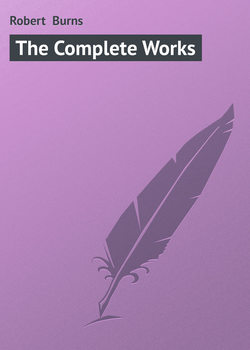Читать книгу The Complete Works - Роберт Бернс, Robert Burns - Страница 115
THE POETICAL WORKS OF ROBERT BURNS
CXIII. THE FIVE CARLINS. A SCOTS BALLAD
ОглавлениеTune—Chevy Chase.
[This is a local and political Poem composed on the contest between Miller, the younger, of Dalswinton, and Johnstone, of Westerhall, for the representation of the Dumfries and Galloway district of Boroughs. Each town or borough speaks and acts in character: Maggy personates Dumfries; Marjory, Lochmaben; Bess of Solway-side, Annan; Whiskey Jean, Kirkcudbright; and Black Joan, Sanquhar. On the part of Miller, all the Whig interest of the Duke of Queensberry was exerted, and all the Tory interest on the side of the Johnstone: the poet’s heart was with the latter. Annan and Lochmaben stood staunch by old names and old affections: after a contest, bitterer than anything of the kind remembered, the Whig interest prevailed.]
There were five carlins in the south,
They fell upon a scheme,
To send a lad to London town,
To bring them tidings hame.
Not only bring them tidings hame,
But do their errands there;
And aiblins gowd and honour baith
Might be that laddie’s share.
There was Maggy by the banks o’ Nith,
A dame wi’ pride eneugh;
And Marjory o’ the mony lochs,
A carlin auld and teugh.
And blinkin’ Bess of Annandale,
That dwelt near Solway-side;
And whiskey Jean, that took her gill
In Galloway sae wide.
And black Joan, frae Crighton-peel,
O’ gipsey kith an’ kin;—
Five wighter carlins were na found
The south countrie within.
To send a lad to London town,
They met upon a day;
And mony a knight, and mony a laird,
This errand fain wad gae.
O mony a knight, and mony a laird,
This errand fain wad gae;
But nae ane could their fancy please,
O ne’er a ane but twae.
The first ane was a belted knight,
Bred of a border band;
And he wad gae to London town,
Might nae man him withstand.
And he wad do their errands weel,
And meikle he wad say;
And ilka ane about the court
Wad bid to him gude-day.
The neist cam in a sodger youth,
And spak wi’ modest grace,
And he wad gae to London town,
If sae their pleasure was.
He wad na hecht them courtly gifts,
Nor meikle speech pretend;
But he wad hecht an honest heart,
Wad ne’er desert his friend.
Then wham to chuse, and wham refuse,
At strife thir carlins fell;
For some had gentlefolks to please,
And some wad please themsel’.
Then out spak mim-mou’d Meg o’ Nith,
And she spak up wi’ pride,
And she wad send the sodger youth,
Whatever might betide.
For the auld gudeman o’ London court
She didna care a pin;
But she wad send the sodger youth
To greet his eldest son.
Then slow raise Marjory o’ the Lochs
And wrinkled was her brow;
Her ancient weed was russet gray,
Her auld Scotch heart was true.
“The London court set light by me—
I set as light by them;
And I wilt send the sodger lad
To shaw that court the same.”
Then up sprang Bess of Annandale,
And swore a deadly aith,
Says, “I will send the border-knight
Spite o’ you carlins baith.
“For far-off fowls hae feathers fair,
And fools o’ change are fain;
But I hae try’d this border-knight,
I’ll try him yet again.”
Then whiskey Jean spak o’er her drink,
“Ye weel ken, kimmersa’,
The auld gudeman o’ London court,
His back’s been at the wa’.
“And mony a friend that kiss’d his caup,
Is now a fremit wight;
But it’s ne’er be sae wi’ whiskey Jean,—
We’ll send the border-knight.”
Says black Joan o’ Crighton-peel,
A carlin stoor and grim,—
“The auld gudeman, or the young gudeman,
For me may sink or swim.
“For fools will prate o’ right and wrang,
While knaves laugh in their sleeve;
But wha blaws best the horn shall win,
I’ll spier nae courtier’s leave.”
So how this mighty plea may end
There’s naebody can tell:
God grant the king, and ilka man,
May look weel to himsel’!
